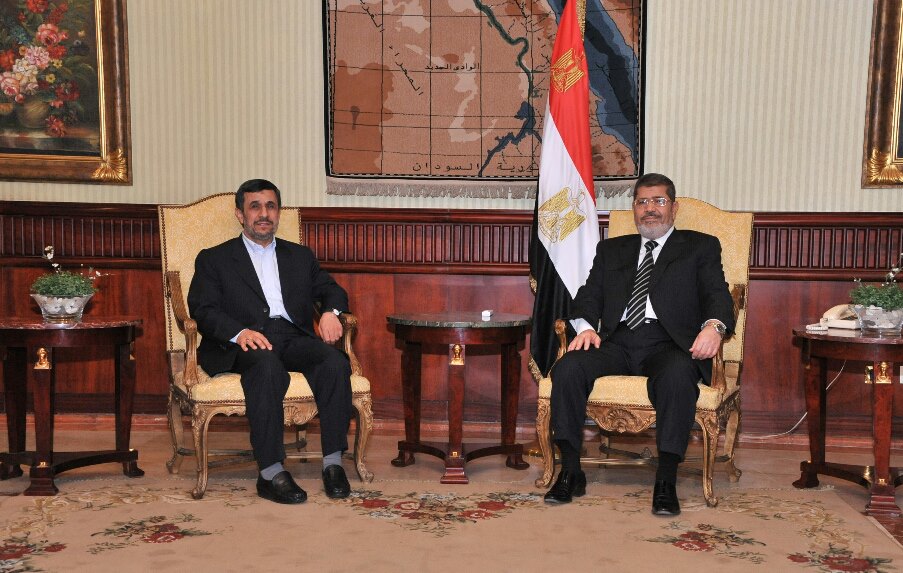CAIRO: The media is no longer allowed to publish the public prosecutor’s investigations or interview any of the parties involved in a case before the final verdict is given, a top judicial official announced Sunday.
Serry Seyam, head of the supreme judicial council, said in a press conference that the new decision applies both inside the courtroom and to wherever outside the courtroom there is media coverage relating to an ongoing case. He also added that the restrictions imposed by this decision can only be lifted after the defendant has exhausted all appeals and the verdict is final.
These limitations stem from an Oct. 4 judicial board decision that prohibits any multimedia coverage of trials. It also prohibits the media and everyone involved in the case — including judges, prosecutors and defense lawyers — from discussing ongoing trials in a way that would harm the reverence of the judges or that would sway public opinion.
“The decision is in sync with the Egyptian constitution and it is in the best interest of everybody,” said Seyam.
Seyam justified the prohibition of multimedia coverage in the courts by referring to Law No. 42 in the Egyptian constitution, which states that a defendant is to be treated in a manner that respects his dignity and that any physical or emotional harm to the defendant is prohibited.
“Filming the defendant being pulled out of the deportation car and into the accusation cage — handcuffed — is considered emotionally harming to him and is thereby against the law,” said Seyam.
Seyam also stated that the presence of cameras and microphones in the courtroom causes additional distractions to and stress on the judges, prosecutors and lawyers, which could ultimately affect their performance.
“We are all human, and sometimes lawyers are affected by the temptation to appear in the media,” said Seyam.
Seyam added that the cameras in the courtroom might scare the witnesses away and prevent them from testifying.
He further justified the prohibition of the media’s discussion of ongoing cases by stating that the media does not present both sides of cases equally, which thus sways public opinion to one side.
Seyam added that if the final verdict contradicts the strong public opinion that the media has helped form, the credibility of the judge would be in jeopardy. He stated that this would violate Law No. 187.
“When you get lawyers making their case on TV with the family of the defendant screaming, and then the judge gives a guilty verdict, you are damaging the public’s trust in the judicial system,” said Seyam.
Some observers said the new judicial board decision places unnecessary restrictions on the media given that there are already laws in place that punish illegal behavior committed by the media.
Hafez Abou Saeda, the president of the Egyptian Organization for Human Rights, called the board’s decision “unconstitutional,” as it breaches Law No. 169 which states that court sessions should be public.
“The court has the right to create rules that control the presence of cameras in the courtroom instead of banning them altogether, and the [laws in place] already control the media’s influence on the public’s opinion regarding trials,” said Saeda.
In response, Seyam defended the new ban as a preventive measure.
The laws already in place are not preventative, since it punishes people after harm has already been done, Seyam said.
“Prevention is the best cure,” said Seyam. “Who has the time to monitor journalists everyday and to make sure that they stay within the limits of the law?”
Seyam also stressed that the trials are public, which is demonstrated by the presence of citizens and journalists in the courtroom and by publicly announcing the court’s verdicts.
He added that the procedures and details of the investigation are to remain confidential by law, and that they are not included under what Law No. 169 regards as public.
Wael El-Ebrashy, journalist and TV host, is concerned about the ambiguity of the decision. El-Ebrashy — whose TV talk show “El-Haqiqa” discusses current affairs including coverage of main trials — wondered whether he would be charged with influencing public opinion by discussing an issue that includes a trial on his show.
“At the end we can’t help but respect the law, but we also can’t help but wonder how this decision will affect the right of people to know,” said El-Ebrashy. “For example, in a case like the ferry in which a lot of people were killed, should I wait until the final verdict before being able to discuss the issue?”
Mostafa Bakri, an independent MP and editor-in-chief of Al Osbou newspaper, said that the public should be allowed to know people’s insights of legal cases that affect them. This is especially true in cases of corruption, where allowing the press access to the investigations has helped unravel new evidence against corrupted officials in previous cases, he added.

